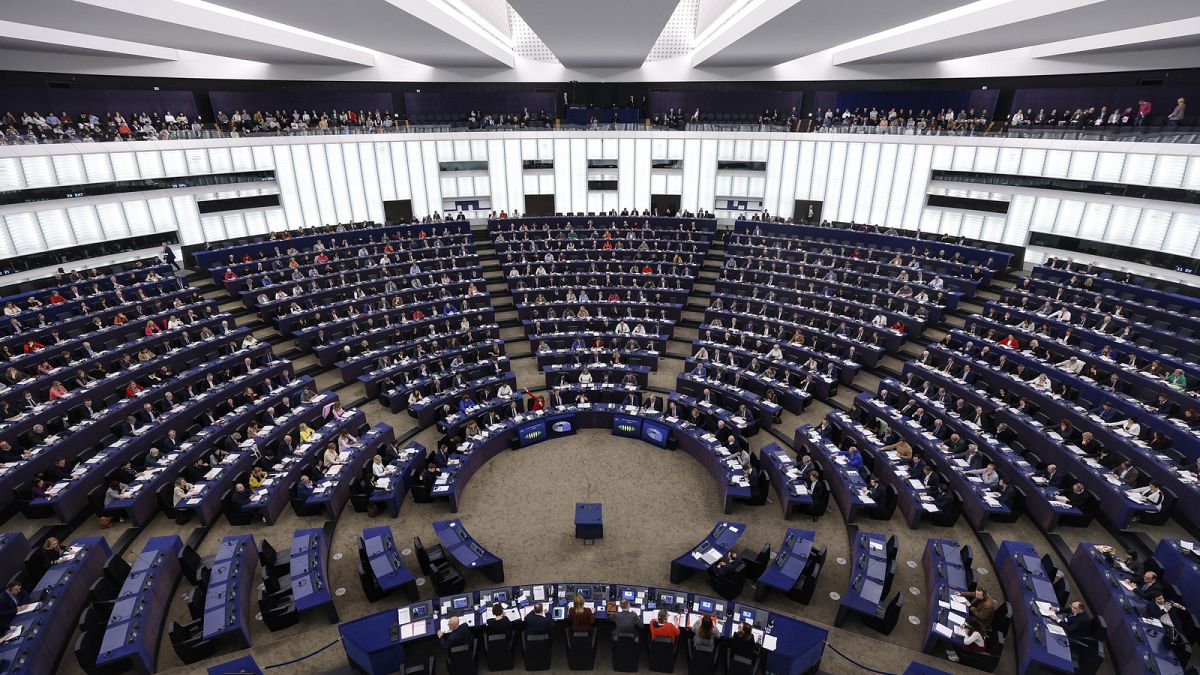European Parliament is set for a four-day sitting starting on Monday, with Commission President Ursula von der Leyen and Hungarian Prime Minister Viktor Orbán as the main attractions. However, there are doubts surrounding the appearances of both leaders. Von der Leyen is set to unveil her team of 26 European Commissioners, but the resignation of a French Commissioner nominee has created uncertainty. Additionally, political infighting in Slovenia could impact the formation of the Commission. Despite these challenges, von der Leyen is determined to present her team.
Orbán will address the Strasbourg plenary session during Hungary’s EU Council presidency. However, the recent heavy flooding in central Europe may impact his attendance. The Hungarian premier faces backlash over his decision to provide easier visa access to Russian and Belarusian workers, which the EU believes poses a threat to the Schengen zone. This move has heightened tensions between Budapest and Brussels, as Orbán faces scrutiny over his migration policies and threats to bus migrants to Brussels. The EU is taking a firm stance against Hungary’s violation of EU laws regarding asylum.
Von der Leyen faces political pressure from various EU factions as she prepares to allocate portfolios to her new Commissioners. The Socialists and Democrats group have expressed concerns over influential portfolios going to nominees aligned with the EPP group. The leaked reports have also raised questions about the lack of female candidates and the allocation of key positions to specific groups. Von der Leyen’s ability to navigate these challenges while keeping mainstream political parties on board remains crucial to her success.
Orbán’s appearance at the plenary session is eagerly awaited, as it offers EU lawmakers a rare opportunity to address his recent actions and statements. Debates on Hungary’s visa scheme for Russian and Belarusian nationals could lead to confrontations over security concerns in the Schengen zone. The EU has raised objections to Orbán’s migration policies and fines imposed by the European Court of Justice. The escalating tensions between Hungary and the EU will be in the spotlight as Orbán faces tough questions from MEPs regarding his government’s actions.
The Venezuelan presidential election dispute will also be on the agenda during the Parliament session, with lawmakers expected to vote on a non-binding resolution. The EU’s stance on Nicolás Maduro’s re-election claim and the recognition of opposition candidate Edmundo González as the legitimate winner will be a topic of debate. The political divides within the Parliament mirror the broader international community’s response to the Venezuelan election results. The draft motion calls for recognition of González as the legitimate president and urges EU countries to do the same, highlighting the ongoing political crisis in Venezuela.
Overall, the upcoming European Parliament session promises critical discussions on the formation of the Commission under von der Leyen’s leadership and confrontations on key issues such as migration policies, foreign relations, and human rights violations. The challenges facing both von der Leyen and Orbán underscore the complex dynamics within the EU, and the debates in Strasbourg will shape the future direction of European politics. As the continent grapples with internal conflicts and external threats, the decisions made during this sitting will have far-reaching implications for the EU’s governance and relationships with member states.










